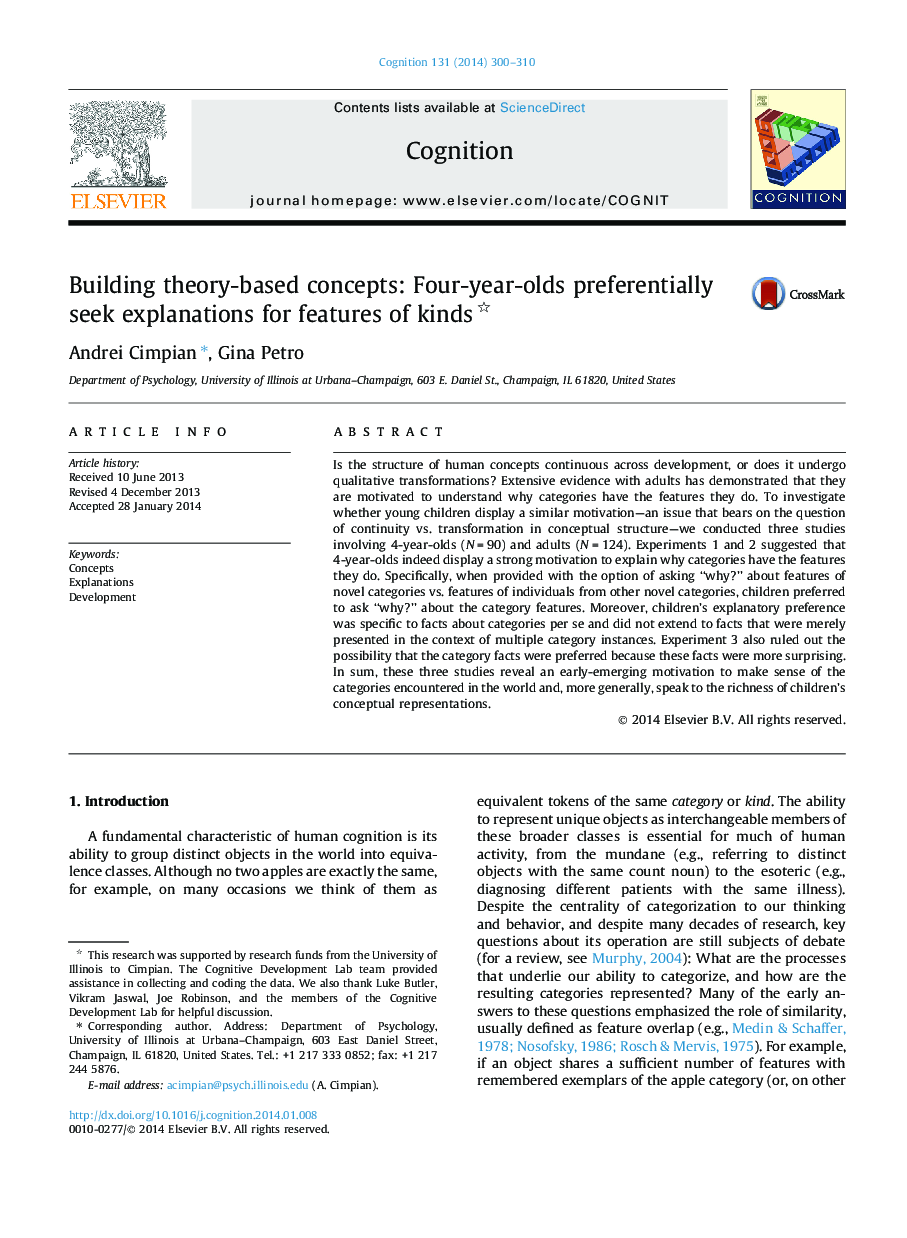| Article ID | Journal | Published Year | Pages | File Type |
|---|---|---|---|---|
| 10457563 | Cognition | 2014 | 11 Pages |
Abstract
Is the structure of human concepts continuous across development, or does it undergo qualitative transformations? Extensive evidence with adults has demonstrated that they are motivated to understand why categories have the features they do. To investigate whether young children display a similar motivation-an issue that bears on the question of continuity vs. transformation in conceptual structure-we conducted three studies involving 4-year-olds (NÂ =Â 90) and adults (NÂ =Â 124). Experiments 1 and 2 suggested that 4-year-olds indeed display a strong motivation to explain why categories have the features they do. Specifically, when provided with the option of asking “why?” about features of novel categories vs. features of individuals from other novel categories, children preferred to ask “why?” about the category features. Moreover, children's explanatory preference was specific to facts about categories per se and did not extend to facts that were merely presented in the context of multiple category instances. Experiment 3 also ruled out the possibility that the category facts were preferred because these facts were more surprising. In sum, these three studies reveal an early-emerging motivation to make sense of the categories encountered in the world and, more generally, speak to the richness of children's conceptual representations.
Keywords
Related Topics
Life Sciences
Neuroscience
Cognitive Neuroscience
Authors
Andrei Cimpian, Gina Petro,
